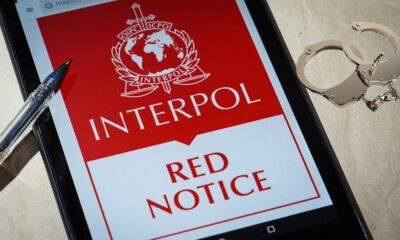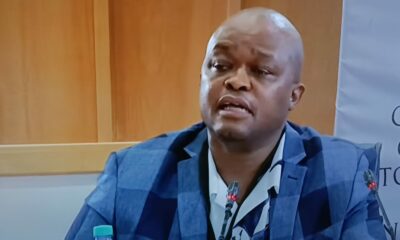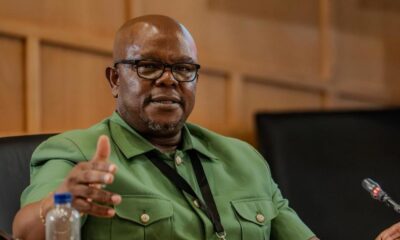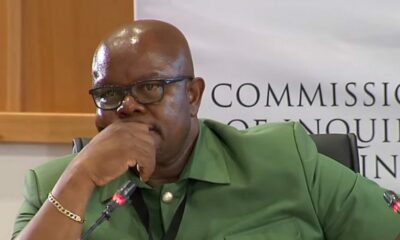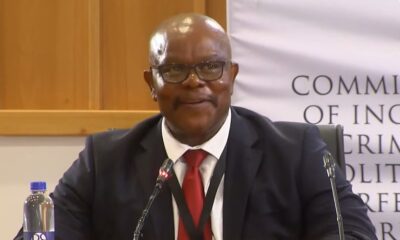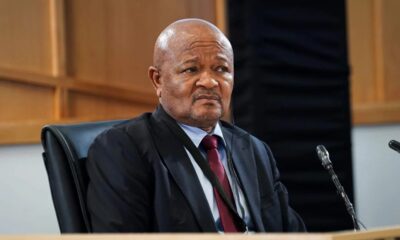News
SA Braces for High-Stakes Madlanga Commission into Police Corruption

A courtroom transformed into the epicenter of accountability
Pretoria is gearing up for what many are calling a pivotal moment in South Africa’s fight against corruption. This week marks the start of the Judicial Commission of Inquiry into Criminality, Political Interference, and Corruption in the Criminal Justice System, better known as the Madlanga Commission. Chaired by retired Constitutional Court Justice Mbuyiseli Madlanga, the Commission promises to shine a light on alleged criminal networks embedded within law enforcement and intelligence structures.
The first public hearing kicks off Wednesday at 10 a.m., when KwaZulu-Natal police commissioner Lt-Gen Nhlanhla Mkhwanazi is expected to testify over five consecutive days. He is set to reveal allegations of political interference, including claims that suspended Police Minister Senzo Mchunu unlawfully shut down the Political Killings Task Team a move Mkhwanazi believes obstructed investigations into politically connected criminal networks.
Public access limited, security tight
The hearings will take place at the Bridgette Mabandla Justice College in Pretoria, a venue transformed into a temporary courtroom. Spokesperson Jeremy Michaels confirmed that public seating is capped at 300, and access will be strictly controlled. “Members of the public must arrive early if they wish to secure a seat. Strict security measures will be in place, and no unauthorised entry will be permitted,” he said.
A costly probe, but with stakes high
The Commission comes with a hefty price tag: R147.9 million over a six-month period, funded by taxpayers across the 2025 and 2026 financial years. While the government asserts that this expenditure is justified given the severity of the allegations, critics are sceptical.
Civil society and opposition parties have already weighed in. Karam Singh from anti-corruption group Corruption Watch said the organisation will monitor spending closely. “If the allegations are proven, or if more evidence emerges of police capture by organised crime, the value to the country could be immense,” Singh said. Yet he acknowledged the challenge: “Commissions of inquiry in South Africa have a poor track record for delivering meaningful accountability. Recommendations are not binding and require political will to implement.”
Opposition voices have been more scathing. The uMkhonto weSizwe (MK) Party described the Commission as a “political spectacle of judicial theatrics” that is unlikely to yield arrests or end impunity. ActionSA MP Dereleen James echoed these concerns, questioning the need for another inquiry when oversight bodies like IPID exist, and when past commissions, such as the R1 billion Zondo Commission into state capture, remain largely unimplemented. Build One South Africa (BOSA) also stressed that taxpayer money must translate into tangible action, warning that recommendations could otherwise end up collecting dust in the Union Buildings.
A moment of reckoning
Despite scepticism, the Madlanga Commission represents one of the most high-profile attempts to confront corruption in South Africa’s criminal justice system. With Mkhwanazi’s testimony and allegations of political interference at the forefront, the hearings are expected to dominate headlines and social media feeds, sparking public debate about accountability, justice, and the integrity of institutions meant to protect citizens.
As Pretoria prepares for the first public hearing, the nation watches closely: will the Commission break the cycle of impunity, or will it become another expensive report gathering dust? For now, the eyes of South Africa are firmly fixed on the Bridgette Mabandla Justice College.
{Source: IOL}
Follow Joburg ETC on Facebook, Twitter , TikTok and Instagram
For more News in Johannesburg, visit joburgetc.com

